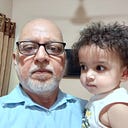The Cave of the Patriarchs massacre
An abhorrent act of violence occurred on February 25, 1994, during Ramadan
The Cave of the Patriarchs massacre, also known as the Ibrahimi Mosque massacre, was a tragic event that took place on February 25, 1994, in the city of Hebron, located in the West Bank. This brutal attack resulted in the deaths of 29 Muslim worshippers and left over 100 injured. The Cave of the Patriarchs, a site of great religious significance to both Muslims and Jews, became the backdrop for this horrifying act of violence that shook the region and further fueled the tensions between the two communities.

The massacre at the Cave of the Patriarchs was carried out by Baruch Goldstein, an American-Israeli settler who was a member of the extremist Jewish group, Kach. Goldstein, armed with an assault rifle, entered the mosque during morning prayers and opened fire on the worshippers, causing chaos and panic to ensue. His motive was rooted in a deep-seated hatred and desire to inflict harm upon the Muslim community, leading to one of the deadliest attacks in the Israeli-Palestinian conflict. The heinous act shocked the world and further strained the already fragile relations between Israelis and
The Cave of the Patriarchs, also known as the Ibrahimi Mosque, holds great religious and historical importance for both Jews and Muslims. Located in the city of Hebron, Palestine, it is believed to be the burial site of Abraham, Sarah, Isaac, Rebecca, Jacob, and Leah — prominent figures in both Jewish and Islamic traditions. As such, it has become a symbol of the shared heritage and contested ownership between the two communities. The site has been a source of tension and violence for decades, as each side claims exclusive

Born in Brooklyn, New York, in 1956, Goldstein moved to Israel in 1983 after completing his medical studies. Initially serving as a physician in the Israeli Defense Forces, he later settled in the West Bank city of Hebron, where the Cave of the Patriarchs is located. Goldstein’s radicalization can be traced back to the violent clashes that erupted in the region during the First Intifada, a Palestinian uprising against Israeli occupation. The growing tensions and frequent attacks on Jewish settlers deeply affected Goldstein.
The Israeli authorities swiftly implemented a series of measures aimed at preventing further violence, including increasing their security presence in the area and imposing restrictions on Palestinian movement. These measures, however, exacerbated the already strained relationship between Jews and Muslims, deepening the divide and fueling mutual distrust and resentment.
Internationally, the attack was met with widespread condemnation. Many countries and organizations expressed their outrage and called for peace and reconciliation in the region. The United Nations, in particular, issued a statement condemning the violence and urging both sides to engage in dialogue to find a peaceful resolution to the conflict.
The Israeli government and court’s reaction to the massacre was met with stark criticism. Palestinian worshipers immediately shot and killed Baruch Goldstein, an American-Israeli settler who committed the heinous act. Despite condemning it as a terrorist attack, subsequent actions were considered by many to be insufficient or even insensitive.
Goldstein received full military honors at his burial, which sparked outrage and protests from various groups. Furthermore, some Israeli officials downplayed the severity of the attack, which only fueled tensions further. As a result of this tragic event, access to the Ibrahimi Mosque became restricted, which contributed significantly to ongoing conflict in the area.
In terms of the legal action taken against Goldstein, no criminal charges were ever filed, despite calls for justice. Instead, several civil lawsuits were filed by victims’ families against both Jewish institutions and the Israeli government, yielding varying results in their respective outcomes. The lack of criminal prosecution remains a point of contention that is often criticized when examining Israel’s justice system regarding this case specifically.
The massacre had a profound impact on the Israeli-Palestinian conflict and the ongoing peace process. It further polarized the already tense relationship between Israelis and Palestinians, pushing them further away from any prospects of reconciliation. The attack fueled a surge of anger and resentment on both sides, making it even more difficult to find common ground and negotiate a peaceful solution. The deep-rooted distrust and animosity between Israelis and Palestinians were heightened, with each side blaming the other for the violence and loss of innocent lives. The massacre also derailed any progress that had been made in peace talks, as it shattered any
